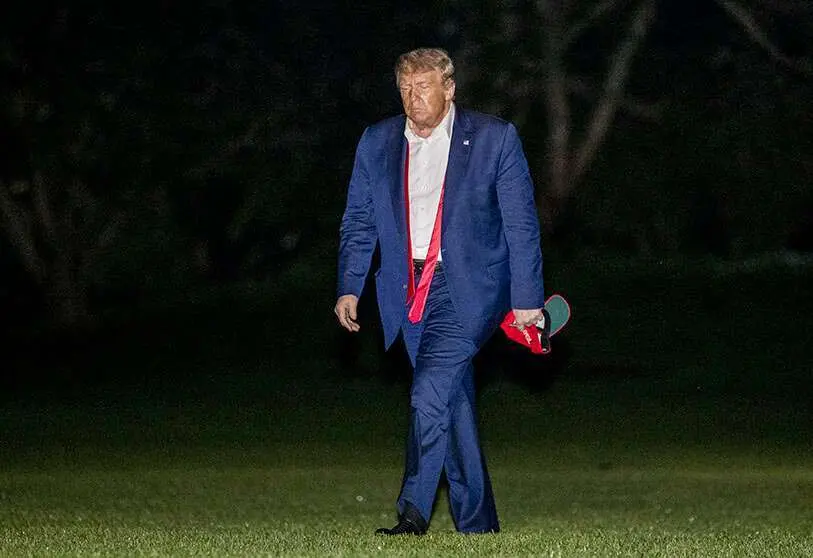The path of salvation

The path of salvation is like walking on a razor's edge, the wise man of the Himalayan mountains told Tyrone Power in "The Razor's Edge" when he went to consult him about his uncertainties after having lived through the nonsense of the First World War. On the edge of the campaign Donald Trump was again on the road to re-election in Tusla after going through the long process of impeachment, the terrible crisis of the coronavirus and the anti racist explosion, which has mobilized the African-American minority and the most critical media. The president, however, has not taken a single step backwards. One could say that a century after Somerset Maugham's novel and after six months of judicial, health and political battles, Donald Trump believes that, in order to cross the path of uncertainty, one must not blink or accept a single criticism, nor lose the essence of the populist message: the "silent majority" is stronger than ever; "sleepy Joe" is not up to the task; we have effectively fought the "kung flu"; we have saved tens of thousands of American lives and now we will enforce "law and order".
The truth is that the polls right now show some favorable trends for Joe Biden. But the ghost of the 2016 election that gave Hillary Clinton a slim victory until a few days before the first Tuesday in November, even until a few hours before the final count, has not yet been erased from the memory of the Democrats. In Pennsylvania, Florida and Wisconsin, decisive for the victory, they are now ahead. And even in Texas, the vote for Trump is less likely. But sociometric models say that in the face of less than buoyant economic data and not extremely negative presidential approval ratings, the president candidate has been re-elected since World War II. Perhaps George Bush was the exception in 1992.
As such, a fairly independent view such as that of The Economist, points out that the key lies in two issues: that the effect of the economic recovery accelerates and that Trump manages to keep the expectations of the vote on the edge of the reversible states. This does not seem impossible at present, although the uncertainties remain very high given the risks of increased contagion and fundamentally because of the extraordinary magnitude of the numbers of victims and the devastating effects of the crisis on the economy and unemployment.
Few polls or models can be reliable in a political situation unknown in recent decades where the pandemic, the growing international tension, the social protests and the confluence of leaderships that, not only in the United States, but also in Spain, the United Kingdom or Brazil, will have to explain to public opinion the lack of foresight, the ups and downs in decisions, the inability to react in a cohesive manner and the number of victims. Not taking a step back, not recognising the mistakes and magnifying the successes by speculating on the number of citizens saved by the action of presidents and governments, as Pedro Sánchez also did in his last appearance, may mean the end of the road for political credibility.

